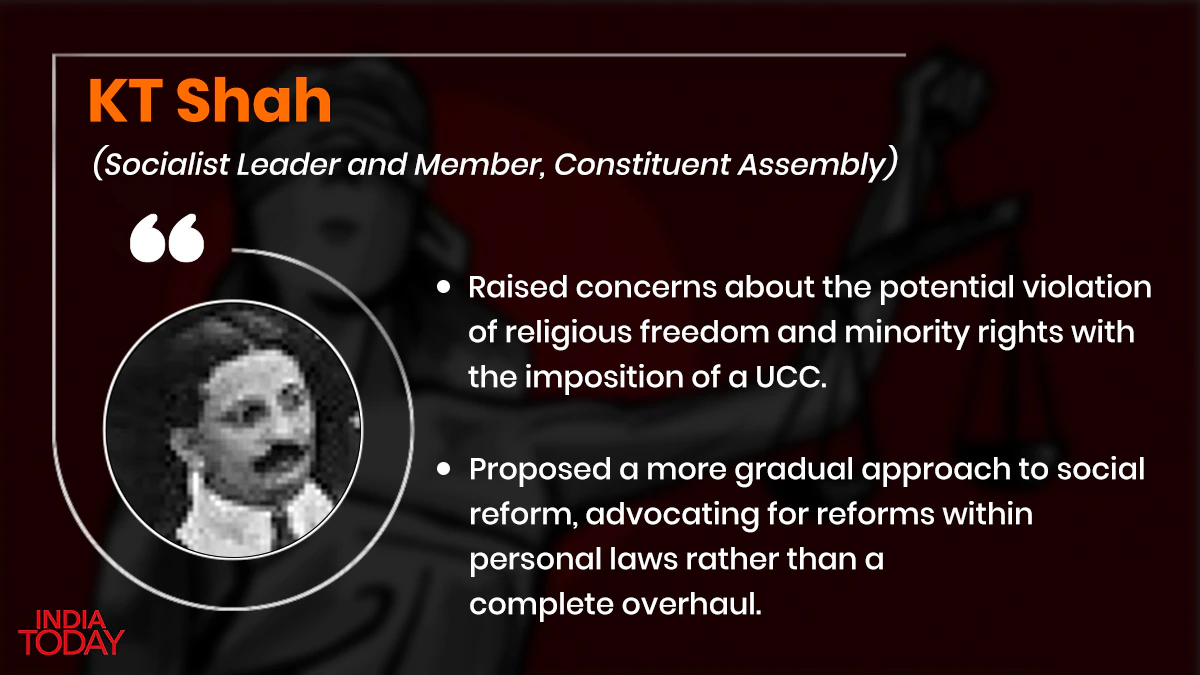Of course, Sardar Vallabhbhai Patel backed Uniform Civil Code (UCC) and had favoured a common set of rules/laws applicable to all citizens irrespective of religious background.
Noted Urdu poet Maulana Hasrat Mohani, who gave the slogan of 'Inquilab Zindabad', opposed the UCC.
Mohammad Ismail, a member from Madras (now Chennai), opposes it. Naziruddin Ahmed, Mehboob Ali Baig, B Pokar Saheb, and Ahmed Ibrahim brought an amendment against the UCC.
UCC in the Constituent Assembly figured under Article 35.
On November 23, 1948, the issue of UCC was raised for the first time in the Constituent Assembly by Congress member Meenu Masani, a member from Bombay (now Mumbai).
Women members enthusiastically backed Uniform Civil Code. There were 15 women members in the Constituent Assembly. Hansa Mehta was among these 15.
Hansa Mehta was also a member of the Fundamental Rights Sub-Committee. Rajkumari Amrit Kaur, Dr Bhimrao Ambedkar, Meenu Masani, Kanhaiyalal Maniklal Munshi, Alladi Krishnaswami Iyer "vociferously supported the implementation of a UCC and argued strongly in its favour", says 'India Today' article.
During the marathon debate, it was argued that the UCC would strive to harmonise diverse cultural, regional, and religious practices, fostering social cohesion and national integration.
- By creating a common set of laws applicable to all citizens, a UCC would minimise conflicts arising from differences in personal laws.
- Opponents argued that implementing a UCC would infringe upon religious and cultural autonomy, diluting the diversity of India's society.
- Personal laws are deeply rooted in religious and cultural traditions, and their preservation was essential to protect minority communities' distinct identities.
Violation of Fundamental Rights:
- Critics claim that enforcing a UCC would violate the fundamental right to freedom of religion, as citizens would be compelled to follow a common civil law.
- It was argued that personal laws provide individuals with the freedom to practice their religion without interference from the state.







No comments:
Post a Comment